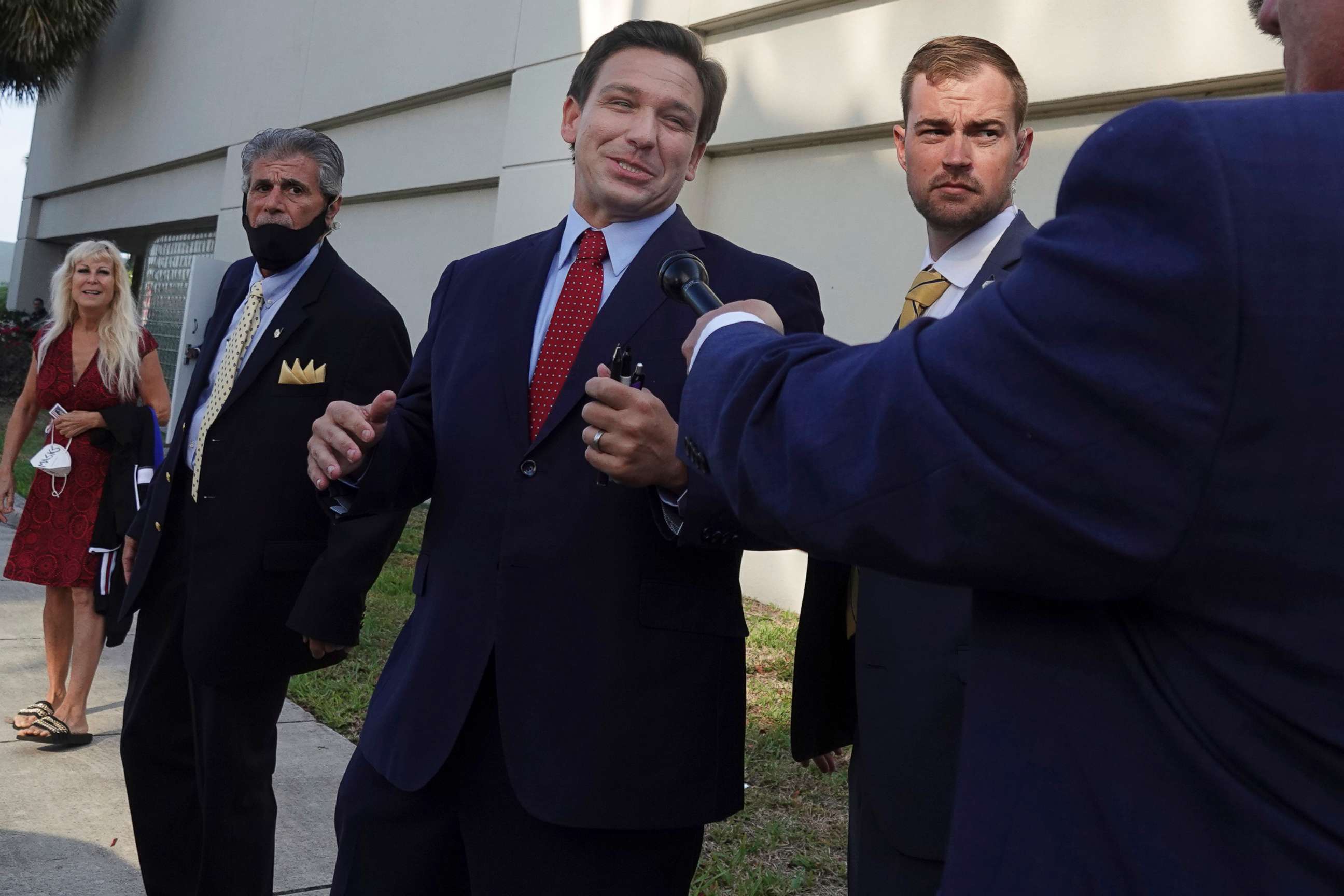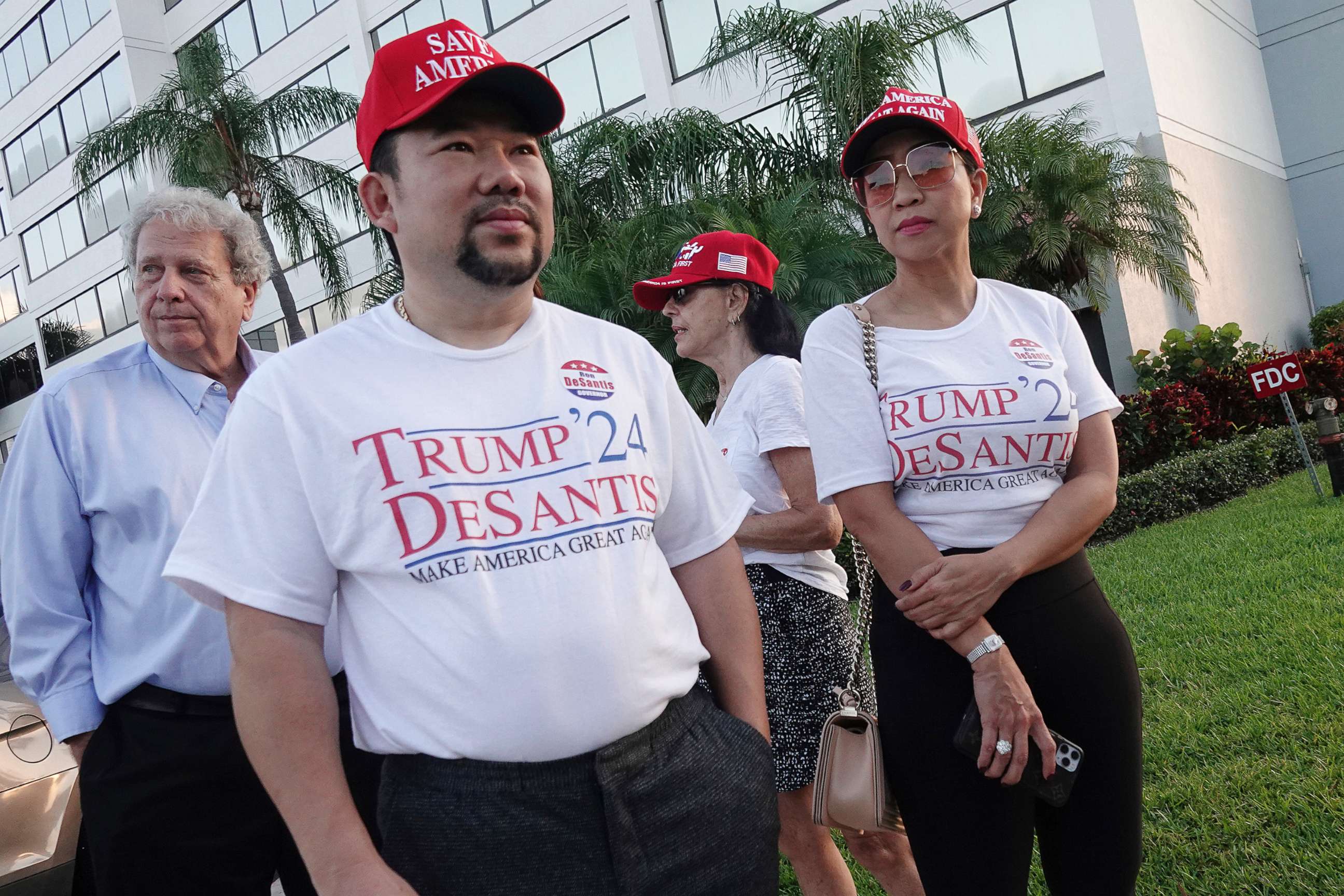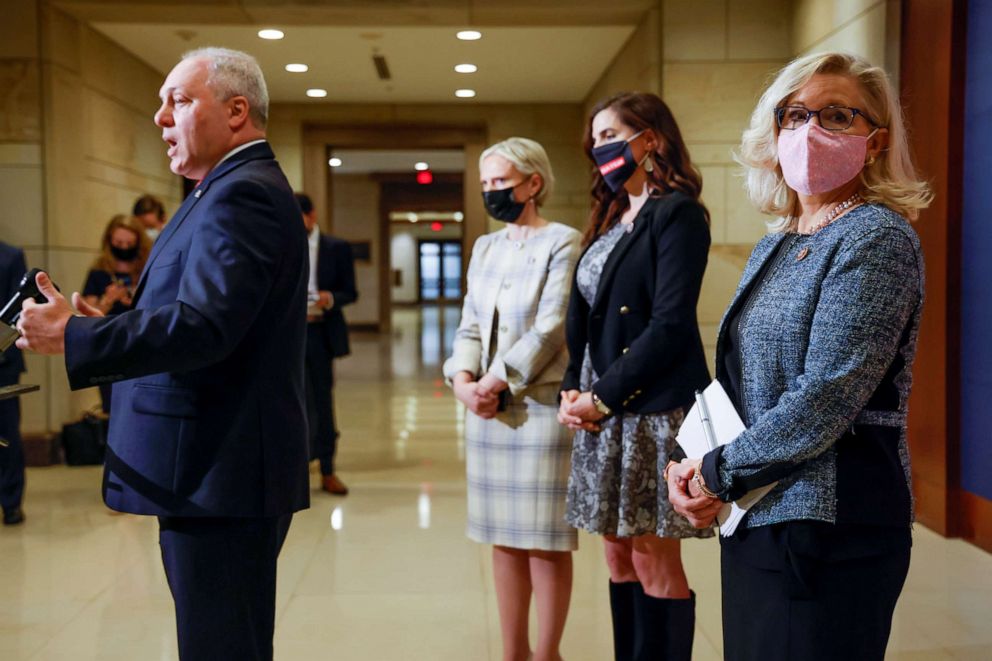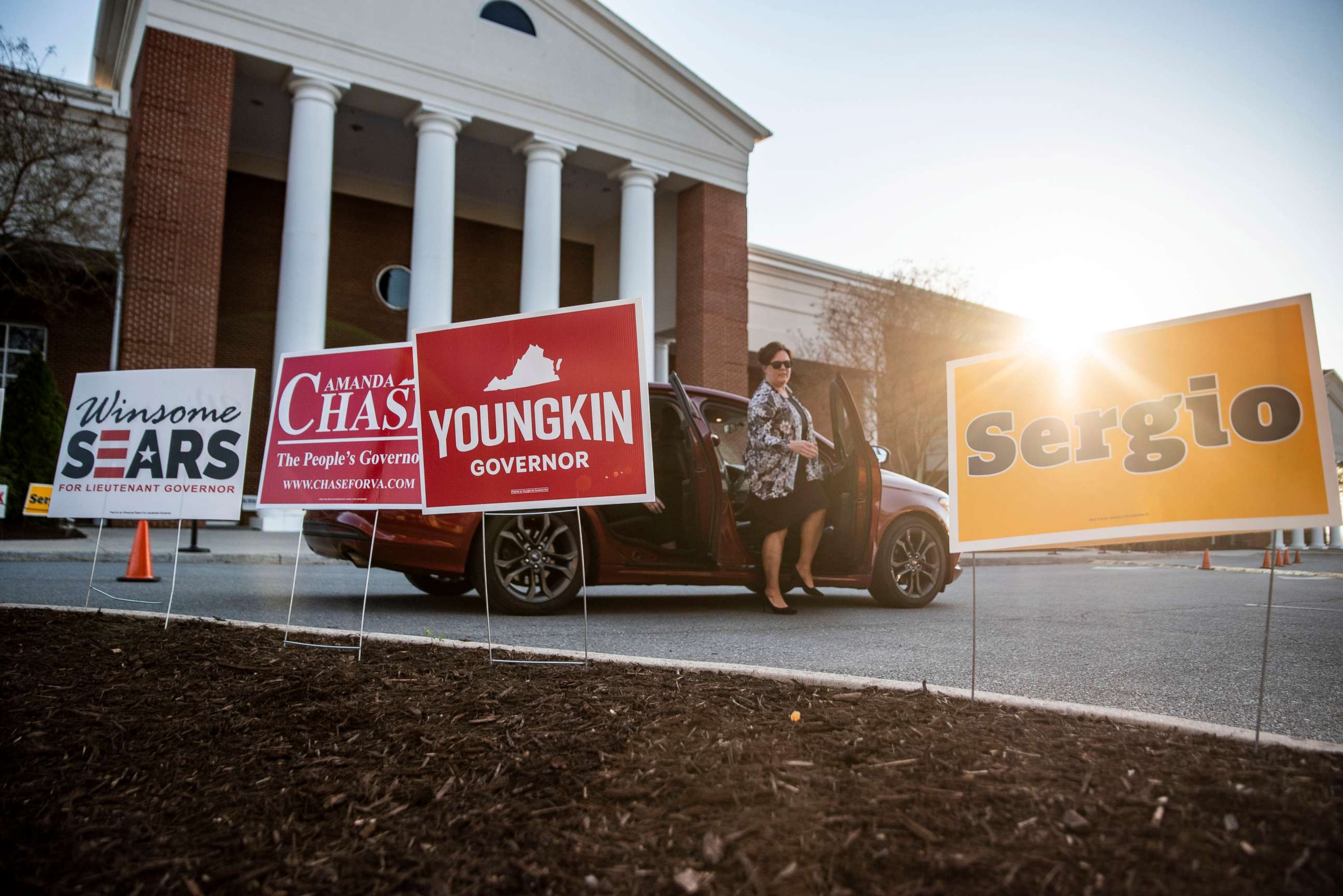Trump's impact expands in wave of new voting laws: The Note
The action in states on voting may be a good indication of where the GOP stands.
The TAKE with Rick Klein
The end of Rep. Liz Cheney's time in House Republican leadership is only a piece of it -- and could be far from the most impactful part.
It's an accident of timing, but far from a coincidence, that Cheney, R-Wyo., is being pushed out at the same time that a wave of states controlled by Republicans approve new restrictions impacting how people vote.
Both are driven by former President Donald Trump's false insistence that the election was stolen. The action in states may be a better indication of where the GOP stands than even the drive to eliminate Cheney from leadership over her decision to continue to call out Trump's lies.
In Florida, Gov. Ron DeSantis invited Fox News in to live-broadcast his bill signing for a law that makes voting by mail more difficult and gives more powers to partisan poll watchers. Texas isn’t far behind, with a roughly similar bill of its own passing the state House early Friday despite opposition from the business community.

Trump won both of those states. DeSantis, a potential 2024 candidate, had proudly touted his state's performance in the last election and signed Trump hats after signing the new law, in case the connection wasn't obvious.
Of course, Trump didn't win Arizona, where Republicans are in the middle of a privately run "audit" of the vote in the state's largest county, an unusual exercise that has drawn the attention of the Department of Justice.
The woman Trump wants to replace Cheney, Rep. Elise Stefanik, R-N.Y., is fully on board for that -- and more.
"We need to fix these election-security issues going into the future, and it's not just Arizona," Stefanik said on a radio program hosted by Steve Bannon, the former top Trump aide who was pardoned after being indicted on fraud charges last year.

Stefanik spoke of party "unity" in that interview, in a comment that rings hollow in light of the circumstances under which she appears poised to win a leadership seat next week. But she's not wrong in citing election integrity as a source of GOP unity.
There are plenty of reasons to change election laws, particularly as the nation emerges from the pandemic. Yet the new laws take as their inspiration doubts that voters harbor about election security -- doubts that Trump continues to stoke based on falsehoods.
The RUNDOWN with Averi Harper
Cheney's ouster from Republican House leadership seems all but inevitable. The treatment Cheney has endured illustrates not only former president Trump's vice grip on the GOP, but also the fraught nature of being a woman in elected office.
The optics of top House leaders publicly trashing the only woman in the party's House leadership, along with the former president's stream of insults for her aren't easily ignored. Additionally, the push for Trump loyalist Stefanik to replace her likely isn't a coincidence.
While the party has sought to engage more women, prominent Republican women have articulated that there is a double standard for Republican women in elected office.

Former presidential candidate Carly Fiorina called the situation sexist, outright.
"We'd like a woman, so that we look right, we want a woman, but we don't want the woman to speak up. We don't want the woman to have an opinion of her own," Fiorina told CNN. "We want the woman to go along to get along with all the men. Of course it's sexist."
"The women don't get the same slack that the men get," said former Rep. Barbara Comstock and ABC News contributor. "And I think a lot of the men are attacking her because they resent that she's got guts and they don't."
Stefanik, who has positioned herself as a champion of women in the party, said she'd work on ensuring that the GOP is "one team" if she were to replace Cheney.
The TIP with Kendall Karson and Quinn Scanlan
The Virginia GOP, eager to halt a statewide losing streak that's gone on for more than a decade, are putting their hopes behind a candidate for governor set to be picked on Saturday.
The nominating convention brings an end to a primary race that has everything to do with Trump. Between the four major candidates among the seven total, it is "Trumpy, Trumpier and Trumpiest," said Larry Sabato, the founder and director of the University of Virginia's Center for Politics. The chief contenders are state Sen. Amanda Chase -- who Sabato called the "Trumpiest" -- former state House Speaker Kirk Cox, entrepreneur Pete Snyder and former hedge fund investor Glenn Youngkin.

The statewide gathering also starts a marquee election this year in a state that has largely rebuffed Trump during his presidency -- a potential disadvantage in a general election. Democrats gained full control of the state legislature in the last four years and the former president himself lost badly in Virginia in 2016 and even worse in 2020. "It's a tough sell for them, they're all connected to Trump," Sabato said of the GOP contenders.
With the Republican Party as a whole navigating the central question of what to do about their most influential member, perhaps Virginia will offer a first indicator for what kind of GOP candidate can win in this new era.
THE PLAYLIST
ABC News' "Start Here" podcast. Friday morning's episode features ABC News Political Director Rick Klein, who tells us what we need to know about new voting restrictions signed into law in Florida. ABC News Chief National correspondent Matt Gutman joins us from Texas to explain why recent family reunions are putting only a small dent in the migrant situation. And Pam Perlich, from the University of Utah, breaks down the reasons for the falling birth rate in the U.S. http://apple.co/2HPocUL
WHAT YOU NEED TO KNOW THIS WEEKEND
Download the ABC News app and select "The Note" as an item of interest to receive the day's sharpest political analysis.
The Note is a daily ABC News feature that highlights the key political moments of the day ahead. Please check back Monday for the latest.




